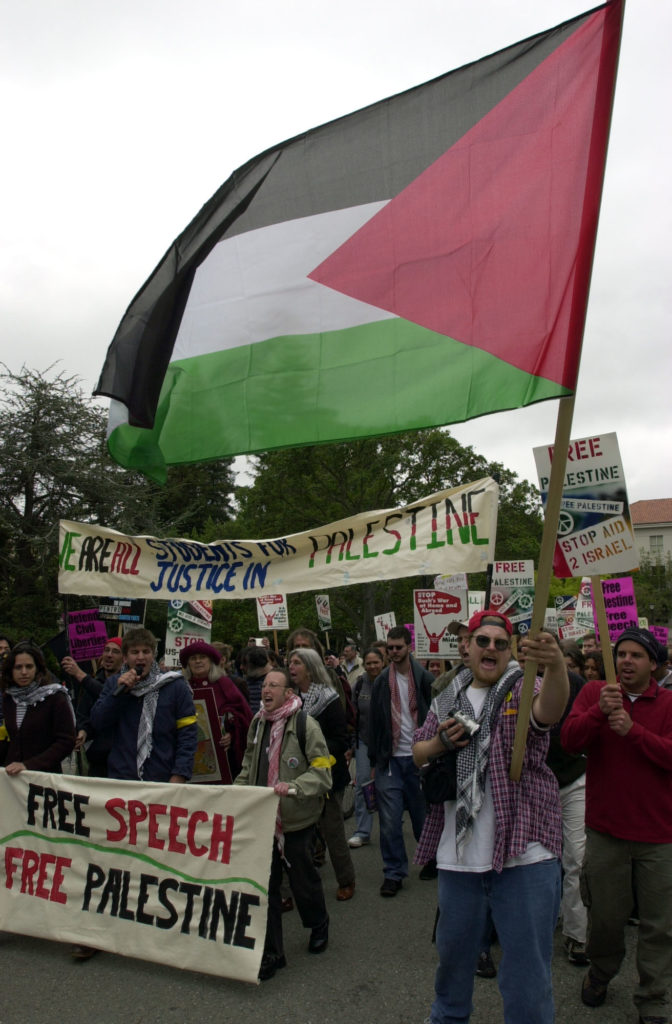New York Assemblyman running for Congress calls to strip UC Berkeley of federal funding over policy adopted by eight student groups banning ‘Zionists’ from speaking at UC Berkeley Law.
By Dion J. Pierre, The Algemeiner
A New York Assemblyman running for Congress has vowed to propose legislation that would strip University of California-Berkeley of its public funding should he be elected.
Michael Lawler, a Republican who represents a district in New York’s Lower Hudson Valley, made the comments to The Algemeiner in response to a new policy — approved by eight student groups on August 21 — banning Zionists from speaking at the UC Berkeley Law.
“It’s insane to prohibit those who support the State of Israel from speaking in a time when, as we saw at SUNY Brockport, college campuses allow unrepentant cop killers and domestic terrorists to speak at their university,” Lawler said. “For our country to thrive, it must encourage diversity of opinion and thought.”
Proposed by Students for Justice in Palestine at Berkeley Law as part a resolution endorsing the boycott, divestment, and sanctions (BDS) movement, the measure called for banning speakers who have “expressed and continued to hold views or host/sponsor/promote events in support of Zionism, the apartheid state of Israel, and the occupation of Palestine.”
Lawler, who is running to replace incumbent Mondaire Jones in New York’s 17th congressional district in the upcoming midterm elections, emphasized that Jewish students deserve to feel safe and secure at their universities.
“I’m speaking out on something happening in California because what happened there is becoming a norm everywhere,” he continued. “This kind of policy puts a target on their back and it’s unacceptable.”
When contacted for comment about the “Jewish Free Zones,” a University of California Berkeley spokesperson directed The Algemeiner to an op-ed, published Sunday at The Daily Beast, in which UC Berkeley Law School Dean Erwin Chemerinsky denied their existence.
“A handful of student organizations — fewer than 10 out of over 100 — initially adopted the by-law. But the rest rejected it or ignored it,” he wrote. “Some that quickly accepted it are now reconsidering that. Most importantly, no group has violated the Law School’s policy and excluded a speaker on account of being Jewish or holding particular views about Israel. Such conduct, of course, would be subject to sanctions.”
Chemerinsky, who is Jewish, also said that he respects both the right of supporters of Israel to speak on campus and the right of student groups to oppose them.
“Some of our students and faculty are strongly critical of Israel’s policies and are concerned about the plight of the Palestinians. Some ardently defend Israel’s actions,” he continued. “Others hold a myriad of views. This is true at Berkeley Law, on the Berkeley campus, and at every university.
Working with the Academic Engagement Network, a nonprofit that promotes free expression and academic freedom on college campuses, UC Berkeley law faculty have issued a statement affirming “the principle of free and open speech at the law school.”
“For many Jews, Zionism is a core component of their identity and ethnic and ancestral heritage,” it says. “As an educational institution we hope that the student groups that have now endorsed a ‘No Zionists speakers’ pledge will engage in dialogue on these issues.”
The statement has so far been signed by Dean Chemerinsky, Koret Professor of Law Peter S. Menell, and Claire Sanders Clements Professor Emeritus Malcolm Feeley.


